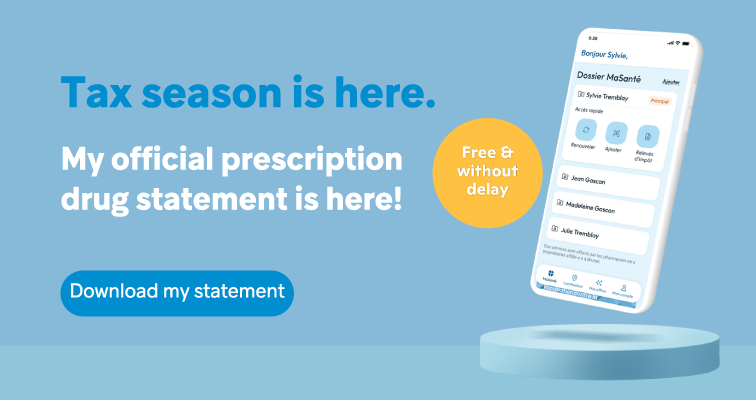Trying to get pregnant, are pregnant or have just given birth? Your pharmacist is one of the most accessible and available health care professionals to advise you on your pregnancy and help you through every step of this happy event.

1
He advises you on taking folic acid and other vitamins.
During pregnancy, your body needs a sufficient intake of folic acid (also known as vitamin B9) to develop normally. This vitamin works to reduce the risks of several birth defects (of the heart, the urinary tract and the neural tube—a defect in the development of the spinal cord). If you are trying to get pregnant, you should start taking vitamin supplements containing folic acid several weeks before conception. Talk to your pharmacist, who can recommend a multivitamin that best suits your needs.
2
He helps you choose the best pregnancy test.
If you think you’re pregnant, you’re probably anxious to know for sure. The best way to find out is to take a pregnancy test. There are several tests available in pharmacy and your pharmacist can help you choose the one that’s best for you. He can also explain how it works to help you get reliable results.
3
He helps you choose safe treatments.
Some medications and natural health products can have a negative impact on the healthy development of your foetus. Also, certain products taken during breastfeeding can affect your newborn. Consult with your pharmacist regularly to make sure you’re not exposing yourself or your baby to harmful medications or ingredients. He can guide you and advise you safe treatments for you and your baby.
4
He helps you deal with morning sickness and other digestive issues.
If you’re suffering from morning sickness during your pregnancy, you are not alone! More than half of all pregnant women are affected by morning sickness. Other digestive problems may occur during your pregnancy, like constipation, bloating and gastric reflux (heartburn). Luckily, your pharmacist is always there to help you manage these inconveniences so you can go about your life as normally as possible. He can also recommend a safe and effective treatment to help alleviate your symptoms.
5
He helps you manage gestational diabetes.
About 4% of expectant mothers will suffer from gestational diabetes. This type of diabetes, characterized by elevated glucose levels (blood sugar in the blood), usually develops towards the end of the second trimester or the beginning of the third. If blood glucose levels aren’t controlled, you could be at risk for a difficult delivery or other complications, preeclampsia, for example. Be sure to consult your pharmacist if you suffer from gestational diabetes. He can be of great help by showing you how to use a blood glucose monitor and get precise, reliable results. Also, should you require insulin injections, your pharmacist is always available to show you how, reassure you and answer all your questions.
